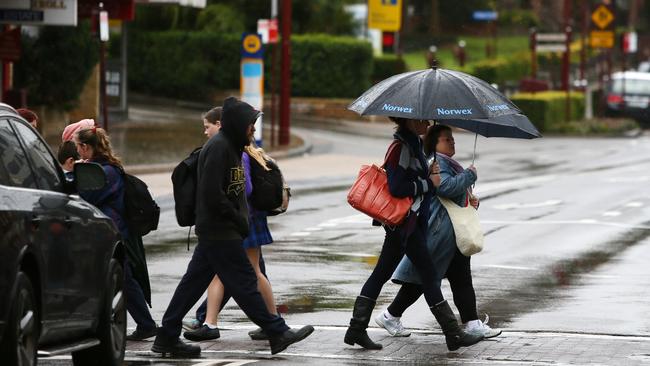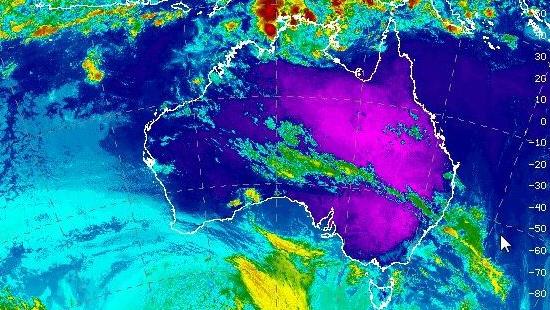Bureau of Meteorology ditches weather experts for ‘community information officers’
The Bureau of Meteorology is bypassing meteorologists to deliver weather reports and has hired a team of community information officers to provide critical reports to Australians.
Business
Don't miss out on the headlines from Business. Followed categories will be added to My News.
Live weather crosses to radio stations across the country will no longer be delivered by experienced meteorologists – instead they will be provided by a team of less-qualified “community information officers”.
The move has prompted widespread alarm, particularly in rural and regional areas that rely heavily on weather information from meteorological experts.
The introduction by the Bureau of Meteorology of the “suitably qualified science communicators” began last month and it will impact about 700 scheduled radio crosses each week that are aired across more than 100 state, local and community radio stations.
The move – which has not been publicly announced – will affect weather radio crosses on both the ABC and commercially owned radio stations.
The shift will see qualified meteorologists, hydrologists and climatologists no longer deliver weather information on air, instead the on-air information will be reported and explained by members of the 10-person team made up of CIOs.

Peak industry body Commercial Radio and Audio’s chief executive Ford Ennals said the organisation was investigating the issue.
“The broadcast of live weather updates and emergency information is an essential service, so it’s important that commercial radio stations have good access to high quality information and meteorologists who are available to talk to local media,” he said.
“A reduction in services would be of concern, particularly due to the frequency of life-threatening weather events.”
The National Farmers Federation vice-president David Jochinke said he was concerned the change would diminish the level of crucial weather information provided from the bureau’s representatives to listeners, including farmers who rely on the weather forecasts.

“There’s value in having meteorologists present the weather and you may not get that with the community information officers, we don’t want to lose that depth of knowledge,” he said.
“I would severely question if it’s a step forward if we are losing the connection with the people who have the knowledge base that we search for when we listen to the weather.”
A bureau spokeswoman defended the move and said those hired in CIO roles would have relevant qualifications in any of the following areas – climatology, meteorology, hydrology, communications, environmental science and/or engineering.
“Their involvement will enable our specialist meteorologists, hydrologists and climatologists to focus on more forecast and warning production and provide expert decision support for emergency management agencies and the wider community,” she said.
“The team of CIOs will draw on the same information that our meteorologists, hydrologists and climatologists currently use to support the delivery of radio crosses.”
The bureau employs about 1500 staff and it provides weather surveillance, forecasts and warning services 24 hours a day, seven days a week.
It receives the majority of its funding from the federal government and in the 2020-21 financial year it received $269.9m.

Employees are spread across more than 60 locations around the country including in capital cities, regional and remote locations and also on offshore islands and Antarctica.
Opposition agriculture spokesman David Littleproud said local and regional radio stations were often “more forensic” in asking questions when weather information was provided and “it gives a richer experience for the farmer”.
“You can hear these conversations from some radio presenters … it is not just about the immediacy of weather but what is coming further down the forecast,” he said.
“The meteorologist who is on duty won’t necessarily make a prediction but will give some indication of the possibilities ahead.
“I don’t know if these people (CIOs) will have the capacity to do that.”
A bureau spokeswoman said that “wherever possible” the CIOs would be based in the region of the broadcast and be “fully briefed on local weather issues”.
In October, the bureau came under fire after it announced it no longer wanted to be referred to as “BoM”, and said it was updating all of its Twitter handles to reflect the change, preferring to be called by its full name or simply the “bureau”. The change – subsequently reversed – cost $70,000.
Originally published as Bureau of Meteorology ditches weather experts for ‘community information officers’



